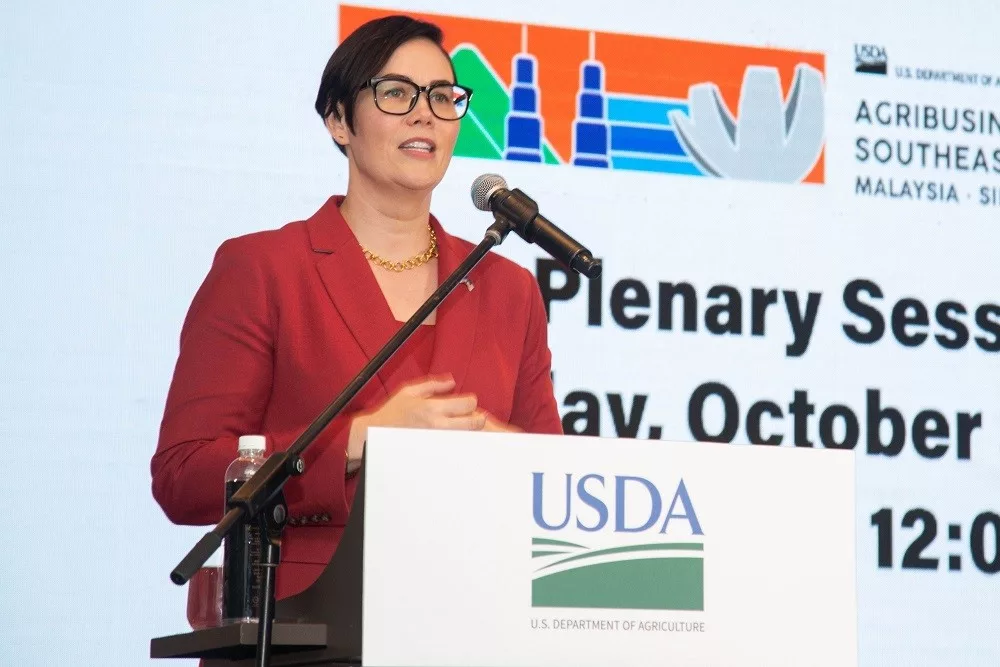
Your browser doesn’t support HTML5 audio
While meeting with reporters at the 80th National Association of Farm Broadcasting (NAFB) Convention last week in Kansas City, USDA Undersecretary for Trade Alexis Taylor keyed in on trade missions that could be particularly beneficial to the nation’s specialty crop industries. Taylor said funding from the USDA will also help the industry with trade challenges.
“In addition to some market development work, we’re doing a hundred million dollars to support the specialty crop sector in some of the unique challenges they have to export products around the world,” she said. “Oftentimes, while they’re high-value agricultural sectors and parts of the state’s agricultural economy, they’re very small. They could be small acres or a small number of producers, and so they don’t have the sheer amount of resources that some of the larger commodity groups do.”
She said the $100 million from the Regional Agriculture Promotion Program (RAPP) will address some of the technical barriers to trade that the specialty crop sector experiences such as transportation issues for highly perishable crops.
In addition to the funding, Taylor is excited about several trade missions planned for 2024 that will include opportunities for businesses within the specialty crop sector. One such trip is planned for April.
“One in particular, I’m really excited for, for our specialty crop growers, is India. Just this year we have been able to lower tariffs on nine products. Products like apples,” she said. “Prior to these retaliatory tariffs being placed on the US apple, it was our number one market and today effectively they’re zero. So, we’ve been able to reduce that tariff. We’re really excited.”
India also dropped the retaliatory tariffs on chickpeas, lentils, almonds, and walnuts and reduced tariffs for turkey, duck, blueberries, and cranberries.
Taylor said one of the key reasons for planning a mission trip to India was to help specialty crop businesses rebuild relationships in that market. She encouraged specialty crop businesses to consider participating in that trade mission and others planned by the USDA. The other trade missions include Vietnam, which is opening its market for U.S. grapefruit growers, Canada, Mexico, Japan, Korea, and Brazil.
